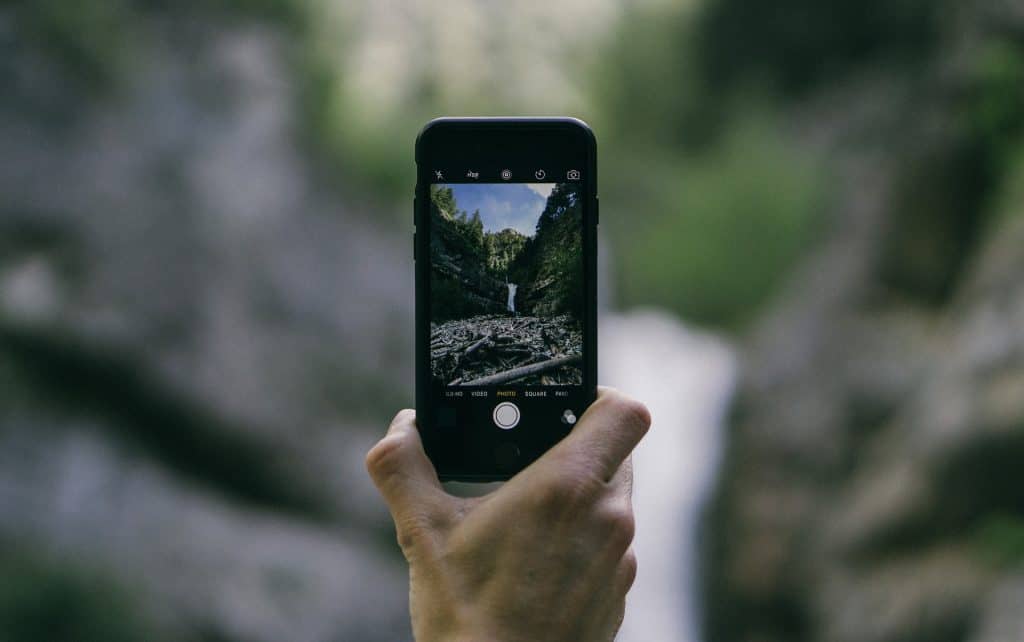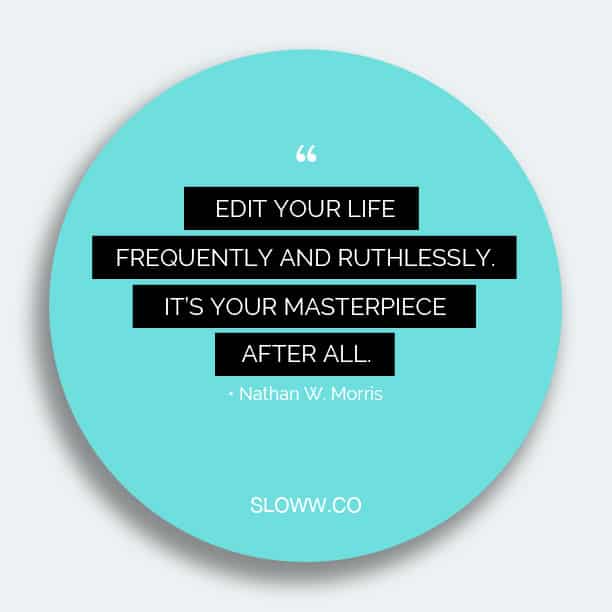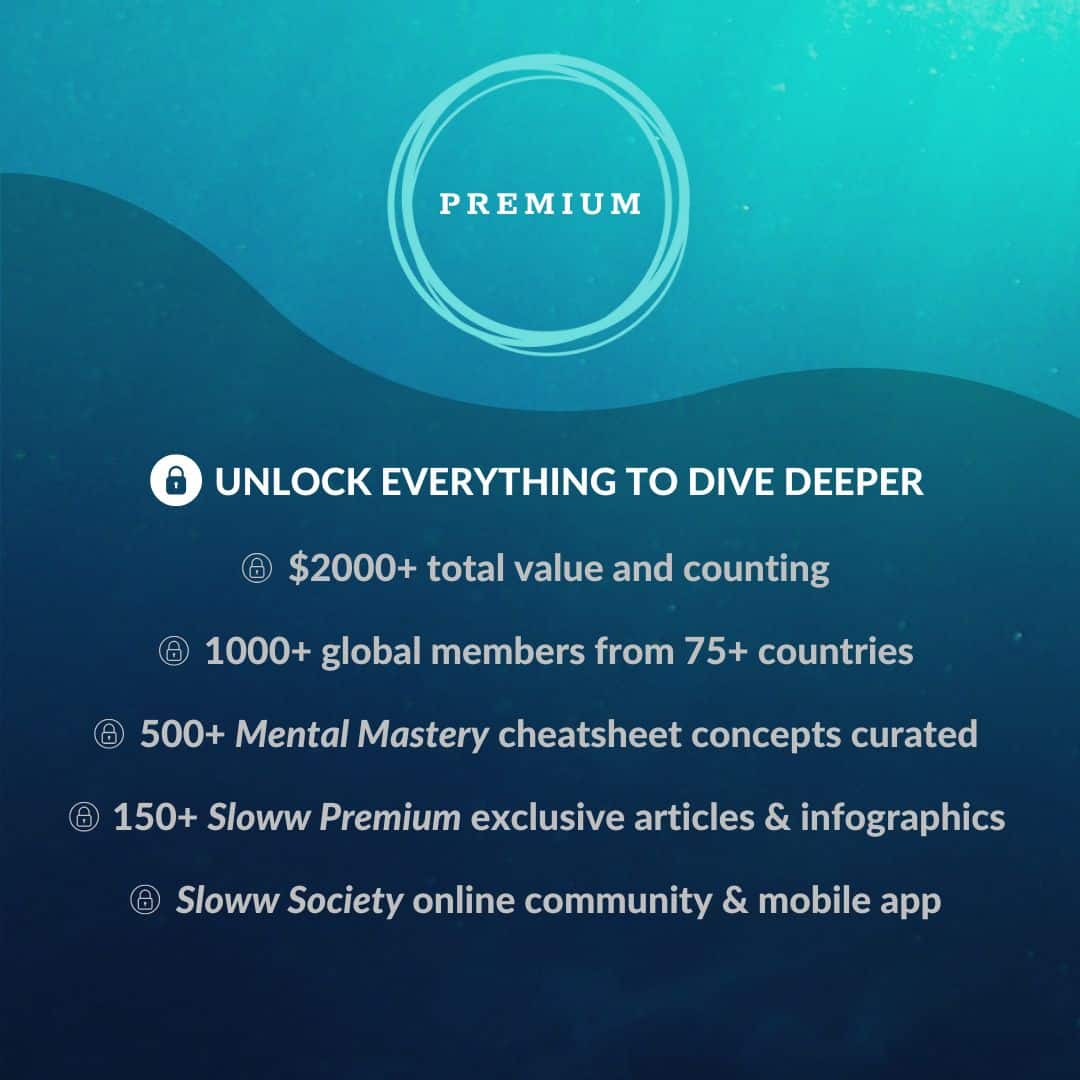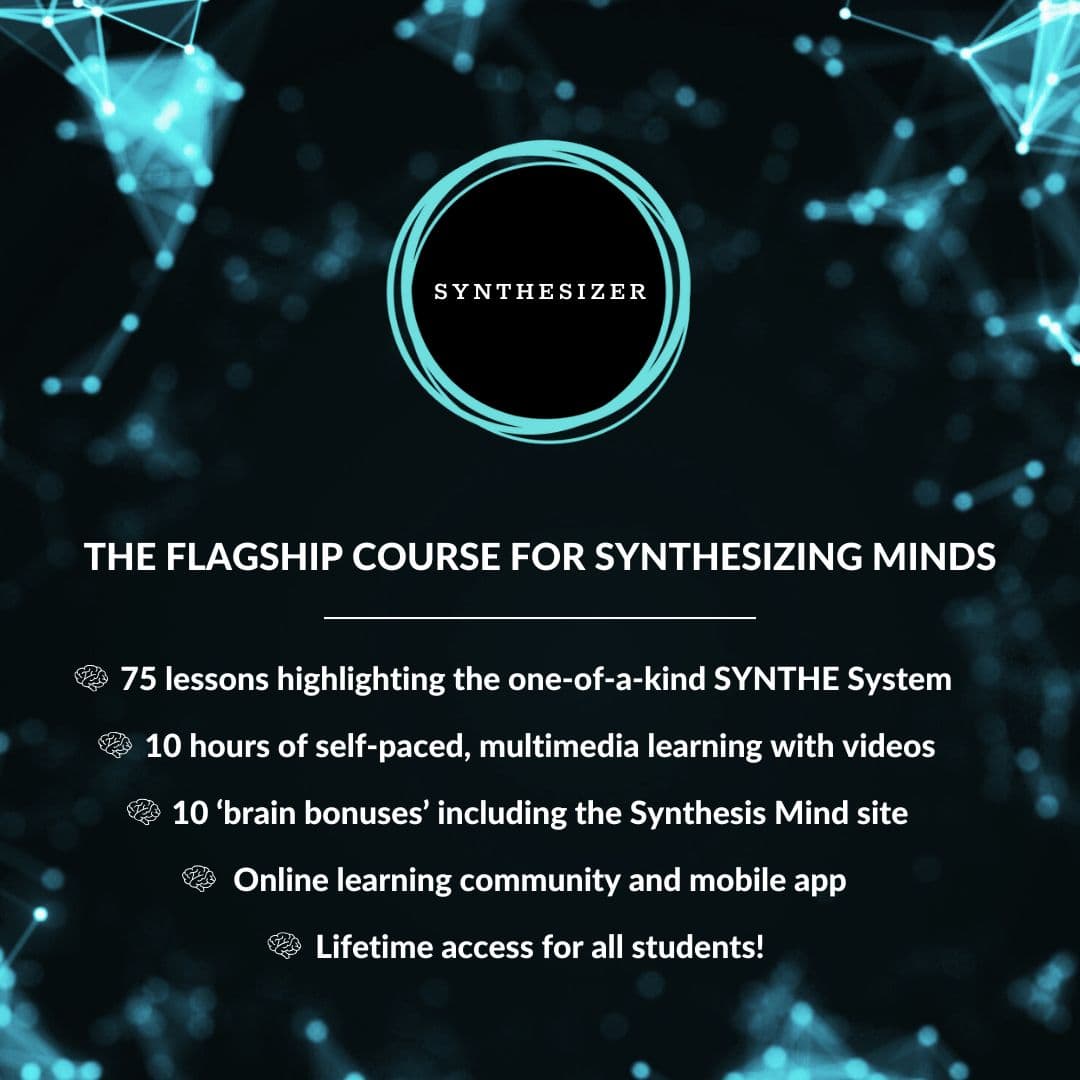
Digital Minimalism Goes Mainstream
You know the need for digital minimalism is real when things like the NoPhone, a plastic rectangle resembling a smartphone, now exist. So real, in fact, that they raised $18,000 on Kickstarter, have sold over 12,000 units, and even appeared on Shark Tank. They’ve even branched into new product lines like the NoPhone Air — plastic packaging with nothing but air inside. It has 5 stars on Amazon. “The product is perfect for people looking to downgrade to nothing,” claim the founders. “Now everyone can put down their real phones, pick up the NoPhone Air and enjoy real life.”
In the same spirit, for April Fool’s Day, The Minimalists launched the Nothing app — a plain white screen. The site says, “From the creators of something, comes nothing. Disrupt Humanity.”
Not even world-renowned industrial designer, Dieter Rams, is safe. His original ten principles for good design have been satirically updated for 2017:
Dieter Rams 10 Principles of Design
*Updated Edition 2017 pic.twitter.com/iWdJBDJiUR
— Tobias Van Schneider (@vanschneider) April 18, 2017
On the surface, it’s all a comedic social statement. But, the underlying message is very real. So, what’s going on?
Digital Usage by the Numbers
I’ll keep this part as brief as possible. According to the latest research from comScore’s 2017 U.S. Cross-Platform Future in Focus study:
- Total digital media usage is up 40% since 2013
- Smartphone usage has doubled in the last 3 years
- 1 of every 2 minutes spent online is on “leisure activities” including social media, video viewing, entertainment/music, and games
- 1 of every 5 minutes spent online is on social media (The Economist just wrote an article titled “Facebook, the world’s most addictive drug.”)
- At the end of 2016, the average person spent 2 hours 51 minutes per day on mobile
If those stats aren’t shocking enough:
- Last year, Apple apparently acknowledged that its device users unlock their phones 80 times every day.
- Another piece of research from dscout claims the average person touches their phone 2,617 times per day (tapping, swiping, typing, etc) — some people are even over 5,400 touches per day.
This high usage is leading to real health issues:
- “New research links the number of social media platforms a person uses with risk of depression and anxiety…The analysis, published in the journal Computers in Human Behavior, shows that people who report using seven to 11 social media platforms had more than three times the risk of depression and anxiety than their peers who use zero to two platforms, even after adjusting for the total time spent on social media overall.” (Futurity)
How is this addiction happening? In November 2016, The Atlantic did a nice job of summing it up in a post called The Binge Breaker:
- “McDonald’s hooks us by appealing to our bodies’ craving for certain flavors; Facebook, Instagram, and Twitter hook us by delivering what psychologists call “variable rewards.” Messages, photos, and “likes” appear on no set schedule, so we check for them compulsively, never sure when we’ll receive that dopamine-activating prize. (Delivering rewards at random has been proved to quickly and strongly reinforce behavior.)”
- “We’ve lost control of our relationship with technology because technology has become better at controlling us.”
- “Elman compares the tech industry to Big Tobacco before the link between cigarettes and cancer was established: keen to give customers more of what they want, yet simultaneously inflicting collateral damage on their lives.”
Enter digital minimalism…
What is Digital Minimalism (or Digital Declutter, Digital Downsizing, Digital Detox, KonMari for your Digital Life, etc)?
Digital minimalism doesn’t start to pop up in Google Trends until late 2010, so it’s a fairly new phenomenon.
A simple Google search for “digital minimalism” brings back top results including:
- Cal Newport, an Associate Professor of Computer Science at Georgetown University, defines digital minimalism as “a philosophy that helps you question what digital communication tools (and behaviors surrounding these tools) add the most value to your life. It is motivated by the belief that intentionally and aggressively clearing away low-value digital noise, and optimizing your use of the tools that really matter, can significantly improve your life. To be a digital minimalist, in other words, means you accept the idea that new communication technologies have the potential to massively improve your life, but also recognize that realizing this potential is hard work.” “The core idea of digital minimalism is to be more intentional about technology in your life. Digital minimalists carefully curate these technologies to best support things they value.” “The traditional minimalists correctly noted that living among lots of physical clutter is stressful. The same is true of your online life.”
You can read Cal’s posts on the subject here: On Digital Minimalism, Some Thoughts on Transitioning to Digital Minimalism, and On Value and Digital Minimalism. BONUS: If that blurb about Cal piqued your interest, check out his book Deep Work: Rules for Focused Success in a Distracted World
- NoSidebar, a minimalism blog, defines it as: “Digital minimalism is a mindset of questioning which digital communication tools are necessary for your happiness. Whether it be email, social media, or general internet consumption, the purpose of this philosophy is to question whether or not they add value to your life.”
5 Simple Ways to Reduce Digital Clutter
These days, there’s quite a bit online about tips for digital minimalism. Joshua Becker at Becoming Minimalist offers some great starter tips in his post “25 Areas of Digital Clutter to Minimize.” Many lists repeat similar tips, including things like:
- Turn off notifications, badges and sounds — I’ve done this for virtually everything except my phone and text apps. This one alone makes a world of difference to minimize interruptions. Apparently there’s research that shows it takes an average of 23-25 minutes to return to a task once you’ve been interrupted.
- Unsubscribe from as many email newsletters as possible — Inbox zero is much more achievable when you have less email being delivered to you in the first place.
- Set up an adblocker — “Intently is the world’s most inspirational adblocker…More than 1 in 4 internet users are using adblocking software, and their rapid exodus from advertising is costing companies billions.”
- When all else fails, DELETE (and get good at quitting) — Realizing you simply can’t practice self discipline with some things is the first step. From there, just delete — the app, the newsletter subscription, the social network, etc. My wife and I cancelled cable a few years ago (“deleted TV”). I deleted thousands of tweets from my personal Twitter account and now no longer actively post on Twitter (or any social network for that matter). I “unliked” all Facebook Pages that weren’t adding value to my life. Delete apps that you compulsively check or waste money on and use the desktop site instead (doesn’t solve everything, but it at least curbs usage frequency). Delete to save yourself from yourself. How many things are you willing to delete/quit?
- Join the National Day of Unplugging — Literally, a pledge to unplug for 24 hours. Is 24 hours of unplugging no big deal for you? Check out the pro tips below to up your unplugging game.
5 Pro Tips for Digital Minimalism
This is where it gets tough. I truly believe digital clutter is more dangerous than physical clutter — at least in terms of what it can do to your time. Like most things in life, digital minimalism simply requires balance. If only it were simple. You must reject the FOMO (fear of missing out) and focus on intentional consumption. Here are some ideas to get started:
- Track your C:P ratio (Consumption:Production) — I first heard of the C:P ratio on Quora. Even reading educational material has a point of diminishing returns. This one is extremely tough for me personally. Maybe ironically, I use a habit-tracking app to track whether or not I accomplished this and “intentional consumption” daily. Speaking of habit-tracking…
- Use a habit-tracking app — Personally, I use the apps Coach.me and Streaks. I’m a big believer in “don’t introduce complexity where it’s not necessary” and “use technology so you can use less technology.” I think this tip is an attempt at that — adding a technological tool to hold yourself accountable. Cal Newport says, “Many of the highest return online activities are those that take advantage of the Internet to improve important aspects of your offline life.”
- News fasts (or quitting the news or the “sustainable news movement”) — Clay Johnson wrote a book called “The Information Diet.” “The modern human animal spends upwards of 11 hours out of every 24 in a state of constant consumption. Not eating, but gorging on information ceaselessly spewed from the screens and speakers we hold dear. Just as we have grown morbidly obese on sugar, fat, and flour—so, too, have we become gluttons for texts, instant messages, emails, RSS feeds, downloads, videos, status updates, and tweets.” He says consumers have to take responsibility for the type of information they consume, much like consumers must take responsibility for the foods they eat. He says we have to create a sustainable news movement, much like we’ve created a sustainable food movement. “I grew up believing that following the news makes you a better citizen. Eight years after having quit, that idea now seems ridiculous—that consuming a particularly unimaginative information product on a daily basis somehow makes you thoughtful and informed in a way that benefits society.” (Raptitude). My personal tip is to just try and be intentional and visit BBC News for a few minutes when you want to catch up on the news.
- Meditation retreat — Doesn’t this sound nice? Silent meditations, eyes closed, no speaking, and slow-walking meditations in nature. There’s a great read called “I Used to be a Human Being.” “The only words I heard or read for ten days were in three counseling sessions, two guided meditations, and nightly talks on mindfulness.”
- Social media sabbatical — These can vary in length: 30 days, 60 days, 3 months, 6 months. The most recent example I’ve seen is Patrick Rhone going “nonline” for the next year. Musician Ed Sheeran just took 12 months off social — and he has over 40 million followers — saying, “Hello all, I’m taking a break from my phone, emails and all social media for a while, I’ve had such an amazing ride over the last 5 years but I find myself seeing the world through a screen and not my eyes.” Author Neil Gaimon took a social media sabbatical back in 2013: “I’ll be taking about six months off…a sabbatical from social media so I can concentrate on my day job: making things up…People ask me where I get my ideas from…and the answer is that the best way to come up with new ideas is to get really bored.”
And, last but most importantly, the #1 digital minimalism pro tip is to constantly remind yourself you are a person, not a product. (Click to Tweet)
You are a Person, Not a Product
You are the product when you are using the Internet. You are data that is then sold to advertisers — that they then use to sell you even more stuff you don’t really need. Don’t fall victim to lifestyle inflation. Next time (and every time) you open Facebook from here on out, just remember you are doing exactly what they want. And, the longer you stay the better. More user sessions, more minutes per day, more data, more ad revenue. You are the product.
This “game” has already even been covered by satire site, The Onion: “Exciting New App Allows Users To Be Pawns In 26-Year-Old CEO’s Little Game.”
Luckily for all of us, there are some good souls already fighting back:
- Sep Kamvar (MIT Media Lab) has similar thoughts on what he calls self limiting technology. Instead of technology being useful initially, but then embedding itself and changing the way we live, technology could just solve the problem it sets out to solve and then just recede away. He gave online dating as an example.
- Called the “closest thing Silicon Valley has to a conscience,” by The Atlantic magazine, Tristan Harris was previously a Design Ethicist at Google and left the company to lead Time Well Spent, a movement to align technology with our humanity. Time Well Spent aims to transform the race for attention by revealing how technology hijacks all of our minds, and demonstrating how better incentives and design practices will create a world that helps us spend our time well. If that was enough info to intrigue you, I highly recommend Tristan’s podcast interview with Sam Harris embedded below where they discuss “the arms race for human attention, the ethics of persuasion, the consequences of having an ad-based economy, the dynamics of regret, and other topics.”
Human inability to make sense of technology isn’t a new phenomenon:
- In a 1931 speech at the California Institute of Technology, Albert Einstein said, “Why does this magnificent applied science which saves work and makes life easier bring us so little happiness? The simple answer runs: Because we have not yet learned to make sensible use of it.”
Just remember, everything in life is about balance. You don’t have to live for 27 years alone in the woods without sending a single email or having a single conversation with another human being (although, we should all remember the story of the tourist and the fisherman).
Most people need to live through the overwhelm of digital overload before they see the light of digital minimalism. As I learned in the book Chasing Slow, “It is named the ‘web’ for good reason” (David Foster Wallace).
If you’re reading this and are able to catch it early, you’re ahead of many (including myself). If you have any tips and tricks you personally use, please share them in the comments. Good luck, and see you in the real world!
Slow Living Resources
Slow Living Life Hacks | Slow Living Challenges | Slow Living Online Forums & Communities | Slow Living Quotes | Slow Living Book Summaries | Slow Living Videos
You can follow Sloww via email using the form field below this post or on social media: Twitter | Facebook | Instagram | Pinterest | Medium | Reddit | Quora







